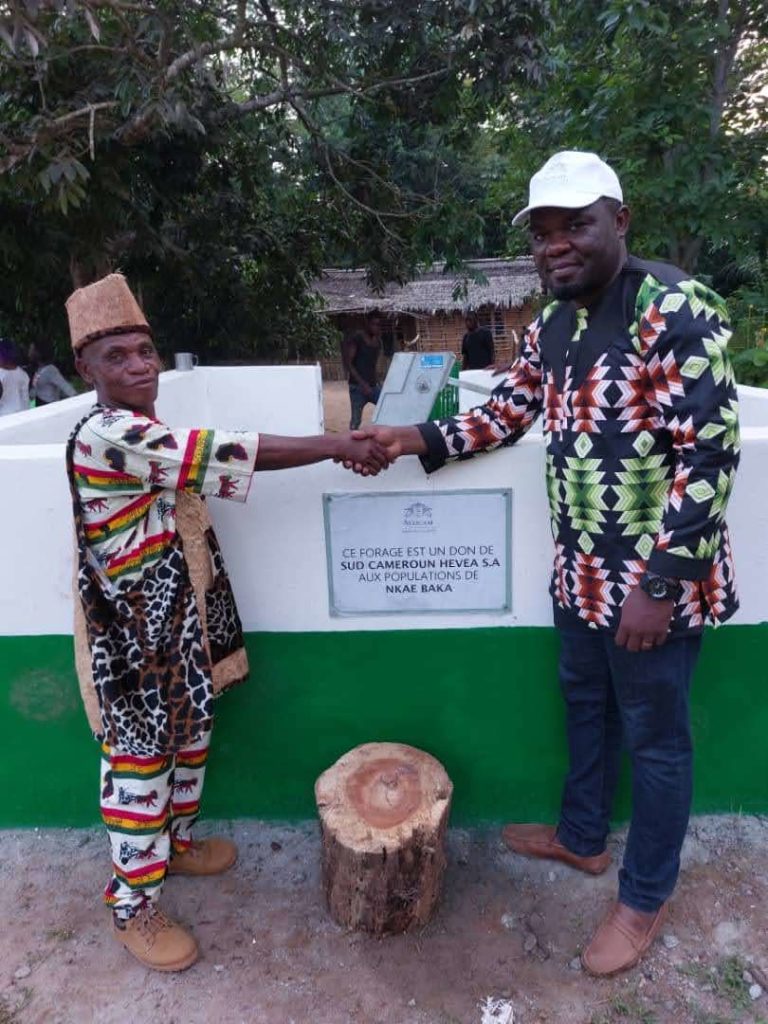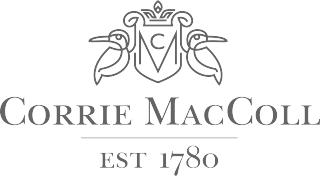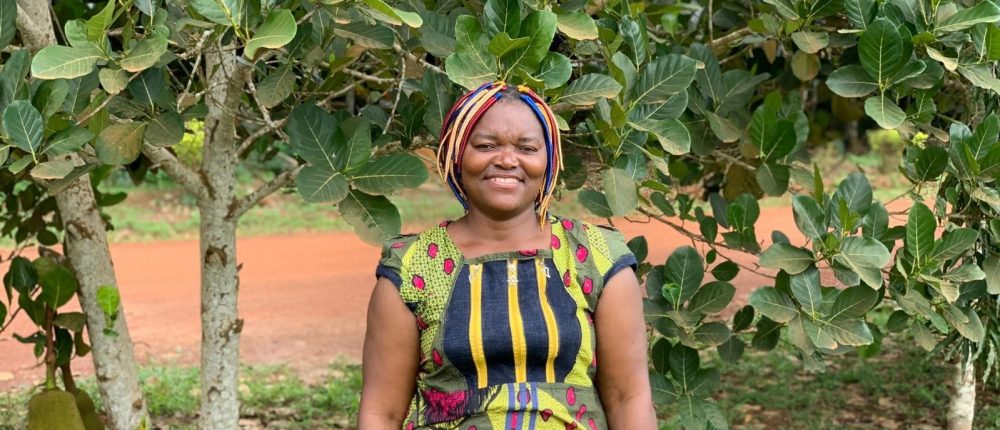We are working alongside Cameroonian NGO, APIFED on a 5-year Social Action Plan to support the local and indigenous communities neighbouring our Sudcam concession. APIFED bridges the gap between freely elected community representatives and Corrie MacColl to facilitate a continuous flow of communication. Community consultations and the resultant initiatives are also implemented by APIFED, as well as being implemented in parallel by NGO, APED at our Hevecam plantation. Such initiatives include support across the following areas: funding, agriculture, education, health, access to drinking water, and the preservation and promotion of the indigenous Baka culture.
Marie Ba’ane from APIFED discusses her role and her motivations in this Q&A.
Q. Tell us a little more about yourself and your role as a Director at APIFED.
A: I coordinate the implementation of social programmes within our communities, mediating between partners and the local authorities. I push for the rights of vulnerable social groups, particularly in relation to the management of natural resources. Additionally, as one of the founding members of APIFED, I actively participate in defining the policy and orientation of the organisation, specialising in strategies regarding advocacy, project management and monitoring.
What motivates you to pursue this challenging line of work?
As I was raised in an environment where my family were victims of multiple forms of discrimination, my parents fought all their lives to assert themselves in a society full of injustices. Whilst my parents are no longer with us, I decided to pursue this area of work to restore a smile to those without, and to contribute to the restoration of violated rights.
After 21 years of challenging projects in the field, I mostly appreciate seeing the genuine, progressive achievement of our objectives. To date, we have concrete and tangible results where many vulnerable groups have seen their rights restored, as well as their economic and social positions improved. This gives me more courage to intensify this fight and to obtain even more significant results across our areas of intervention – possibly even beyond Cameroon. The protection of vulnerable groups is not just limited to here.
What type of unique expertise does APIFED bring to social programmes?
Teamwork drives our NGO, and we all bring rich experience to bridge the gap between the communities and external partners, facilitating a continuous flow of communication. We understand the importance of strengthening the capacities of these communities, and empowering them through free, voluntary choice. Additionally, a foundation of trust first needs to be established before partnerships and projects can be delivered. Understandably, this requires time.
What is the most beneficial way that Sudcam and APIFED are jointly supporting local communities?
This programme has been a very unique and innovative experience and which, to my knowledge, has not been done elsewhere in the region. The key is that projects are delivered to the communities with a strong emphasis on high quality. For example, the Baka communities continue to manufacture mud bricks for house building and security using the brick presses donated by Sudcam.
How has the Social Action Plan positively impacted Sudcam’s relationship with the local communities?
The relationship between Sudcam and the communities has improved a lot since the launch of the Social Action Plan, and we have helped build an innovative and effective dynamic. Of course, there are always more work to be done for this 5 year plan. The priorities for the coming year have already been formulated with the communities, and will be delivered swiftly to set timelines in order to maintain trust. The traditional leaders will be very important participants in this process, and we must emphasize our respect for both the traditional leaders and for the culture of these people. Finally, we will work to gain support from the local authorities.
Sudcam's Social Action Plan
Over 30 local Baka and Bantu communities surrounding the Sudcam plantation were engaged in a community consultation programme intended to allow effective and transparent communications between the plantation and local communities. The consultation was led by APIFED in 2019-2020 and resulted in a preliminary report and analysis. As the initiative has been developed in tandem with local community members, its success is driven by their participation. Each community freely elects representatives who volunteer as mediators to discuss the objectives and timelines. This is required to include representation for women, youth and indigenous people.
Sudcam’s initiatives have included the following:
- Financial support for the protection of the 60,000 ha of forest.
- Completion of boreholes and the construction of streams for water access.
- Support for housing construction and the donation of brick presses.
- Coverage of all supplies, tuition fees and exams for all Baka schoolchildren.
- Agricultural supply: maize seeds, phytosanitary treatment products and equipment.
- Health campaigns, and support with medicine and facilities for local health centres.
- Financial support for celebrations that promote Baka culture.
- Support for the establishment of a Baka Cultural Centre.


